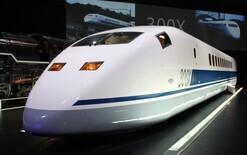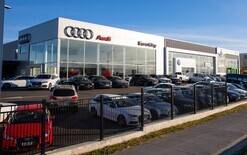Emissions cheat numbers fall
Posted on 14 December, 2015
The Volkswagen Group has detailed the first findings of its internal investigation into the emissions scandal that has engulfed the company since September.
New chairman of the VW Group’s supervisory board, Hans Dieter Pötsch, and chief executive officer Matthias Müller say have given a press conference in Germany on the origins of the fiasco, the conditions that allowed it to happen and the future of the group – as well as new information for current owners.
They say the defeat devices were originally conceived as software to be used on cars sold in the US. Potsch revealed how, in 2005, VW planned a large push of new diesel cars in the US market. However, engineers did not have the time or resources to make the engines comply with California’s tough nitrous-oxide laws, so the devices were used.
From these beginnings, a “chain of errors” meant the device was used to cheat emissions and when a legitimate solution was found, it was not implemented to its full extent. Pötsch said the scandal happened partly because of individual misconduct, but also flaws in the group’s processes and “an attitude in some units of the company that tolerated breaches of rules”.
What next for owners of vehicles affected?
VW will compensate owners if a drop in resale value is triggered by the scandal, and will also pay for any increases in taxes owners must pay as a result of the changes the impending recall will have on vehicles. Two-and 1.2-litre engines will receive software updates, but 1.6-litre engines will require component changes.
Müller confirmed the changes will have a negligible effect on performance, emissions and economy, and “customers won’t be able to feel it”.
Call-backs will start in January with the most common two-litre variant with others coming in the second and third quarter of 2016, reports UK-based The Guardian. However, the company is still working on fixes to cars in the US market where owners will also receive a compensation package.
What next for the VW Group?
During the press conference on December 8, it was announced that the Volkswagen Group would undergo large-scale restructuring.
Individual brands within should become more independent and the company is determined to use the scandal as a “catalyst for change”.
Muller said that the plan to decentralise the group was always on the cards, but the emissions scandal had triggered Volkswagen to push forward with plans to change the company sooner rather than later. “We have not given up our claim of leadership in our industry,” he said.
It has been reported in Europe that that the shift to the new group structure will begin early next year with a full realignment by 2017. An external report being carried out by law firm Jones Day will not be published until sometime next year. Regarding the investigation and the company’s determination to right its wrongs, Potsch said: “We are relentlessly searching for those responsible and they will be held to account.”
VW says only 36,000 vehicles affected
Volkswagen has announced that the number of VW cars sold with false carbon-dioxide emissions ratings was overestimated. The company now says the number of cars sold with incorrect CO2 emissions represents 36,000 annually in Europe – down from the 800,000 first reported in November and representing 0.5 per cent of the group’s annual sales.
Nine different Volkswagen vehicles, each of them specific versions of certain models, make up the 36,000 cars with the wrong CO2 figures with the Polo, Jetta, Scirocco, Passat, Passat Alltrack and Golf affected.
VW has announced that no fixes to them will be carried out as they are not necessary and as a result fuel-consumption figures for the cars sold with the wrong carbon emissions will not change. The company added that “only a small number of the model variants of new cars will
have the catalogue [CO2] figure slightly adjusted” to reflect the findings of the investigation.
The nine model variants will undergo testing by an independent authority before the end of this year, and anomalies will result in offending vehicles having their official figures readjusted, as well as VW subsidising owners if any subsequent changes result in cars moving to higher tax brackets.
The group originally set aside €2 billion to deal with the issue of false CO2 figures, but it is unknown if this figure will be decreased as a result of the findings. Volkswagen says the findings more or less conclude the petrol side of the emissions scandal, but it still remains that 11 million cars were sold with diesel engines fitted with defeat devices to cheat emissions tests. Other Volkswagen stable brands, such as Audi, Skoda and Seat, will publish their own findings shortly.
VW ‘could sell luxury brands’
The Volkswagen Group may be prepared to sell some off its luxury car brands to pay back a one-year loan of around €20b, reports Reuters.
The company has told its banks that supplying the credit line that it will sell its assets if no other way of repaying the loan is possible, according to two sources. VW secured the loan last week and seems to have plans to refinance it by issuing bonds.
If it came to selling assets, one of VW’s likely divestments would be its MAN subsidiary, which known for truck and lorry production but also makes diesel engines for ships and turbo-machinery. It is likely MAN’s non-commercial vehicle production units would be sold first if VW needed to raise cash next year and they have been valued at up to €5b.
But the sources also say: “Volkswagen may also consider divesting luxury car brands Bentley and Lamborghini or Ducati.” These claims should be taken with “a pinch of salt”, reports Carscoops, which adds VW is also cutting costs by eliminating certain trim levels from cars. One of Reuters’ sources adds VW’s low-production luxury brands “don’t really move the needle”.
The reports come as another big-name departure from the VW Group was announced – Dr Ulrich Hackenberg, who – according to Top Gear –was “one of the most influential and prolific car engineers of the modern era”. He retired last week.
Global Volkswagen sales slump
Sales of Volkswagen cars in the UK have fallen by 20 per cent, according to figures from the Society of Motor Manufacturers and Traders. There were 12,958 registrations of new Volkswagens in the UK last month compared to 16,196 in November 2014.
The fall reflects reaction to the diesel emissions scandal with more than 11 million cars have been equipped with defeat devices to cheat emissions testing. Almost 1.2m of them are in the UK.
Other Volkswagen Froup brands took a hit as well, with Seat down by 24 per cent, Skoda down 11 per cent and Audi down four per cent, reports the BBC.
Volkswagen has reported a 24.7 per cent drop in US sales for November, compared with the same month last year. It sold fewer than 24,000 vehicles in the US last month compared with 32,000 in November last year with Passat and Golf models seeing the sharpest declines.
The sales drop is not accounted for by Volkswagen removing two-litre TDi and three-litre V6 powered models from US sales, while Jalopnik reports petrol-powered VWs have suffered a nine per cent fall year-on-year in the US.
The US is not a large market for Volkswagen, but global sales in October were down by five per cent to 490,000 deliveries. The drop in sales comes as the US automotive industry looks forward to a record year with carmakers expected to have sold 18.2m units to US customers in 2015.





